Cats often exhibit odd behaviors that only those who live with them truly appreciate. Whether it’s being gifted a dead mouse or watching your drink get swatted off the table, these quirks come with the territory.
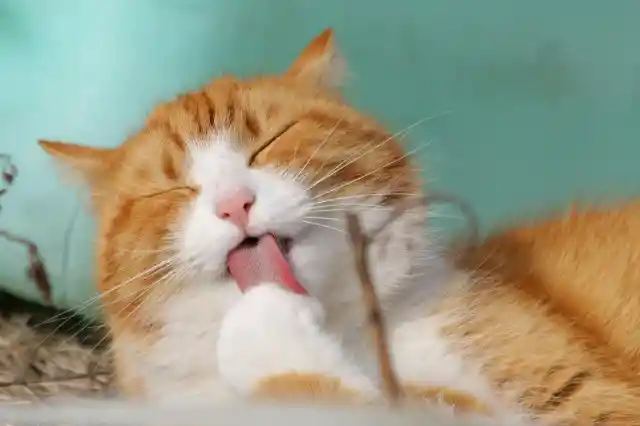
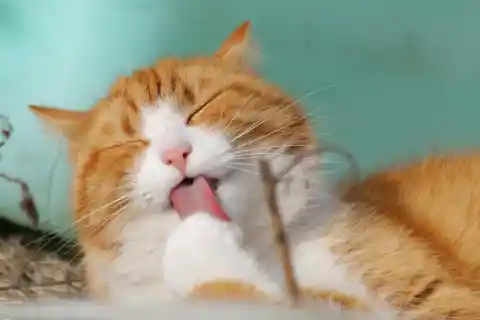
While many feline mysteries remain unsolved, researchers have uncovered enough to tell when a cat's behavior signals contentment or a potential issue. Keep reading to discover what some of these surprising habits really mean and how they may be your cat’s way of bonding with you.
How Cats Seek Your Attention
Cats often insert themselves right into the middle of whatever you’re doing by sprawling across your workspace. Whether you’re reading a book or working on your laptop, they won’t think twice about lying on top of it. This behavior is their way of signaling that they want your focus on them, not the task at hand.
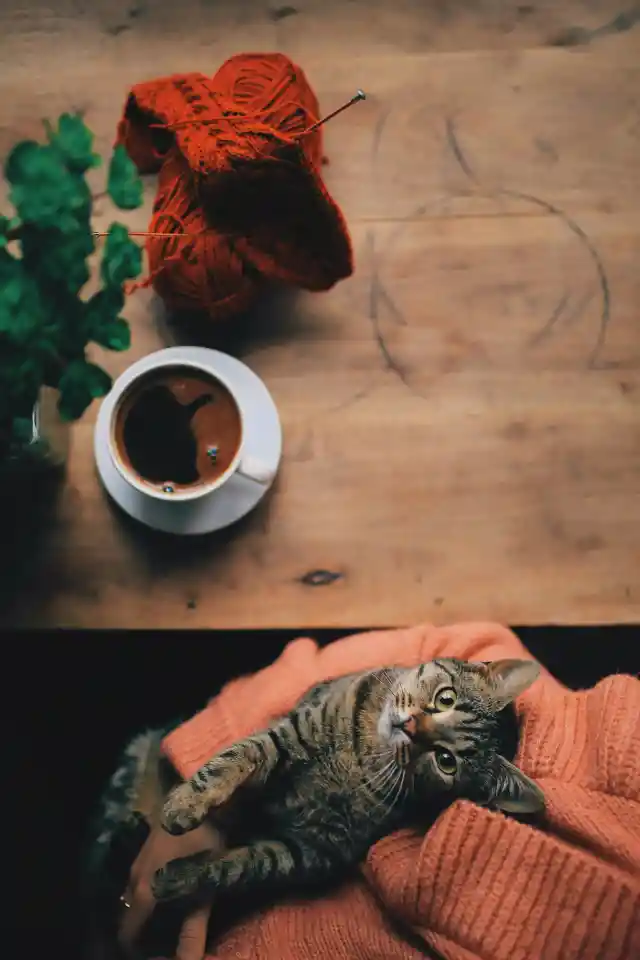
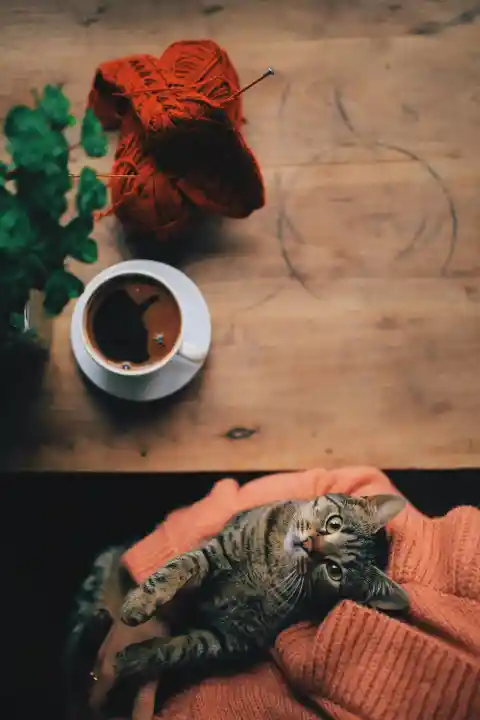
Essentially, they’re demanding your affection—asking for pets and attention instead of letting you concentrate on what you were doing.
Why Do Cats Seem To Ignore You?
Cats are smart animals, but they can be quite headstrong. Unlike dogs, who usually come running when you call their name, cats often act like they didn’t hear you at all. This isn’t because they don’t know their name—it’s more that they choose not to respond.
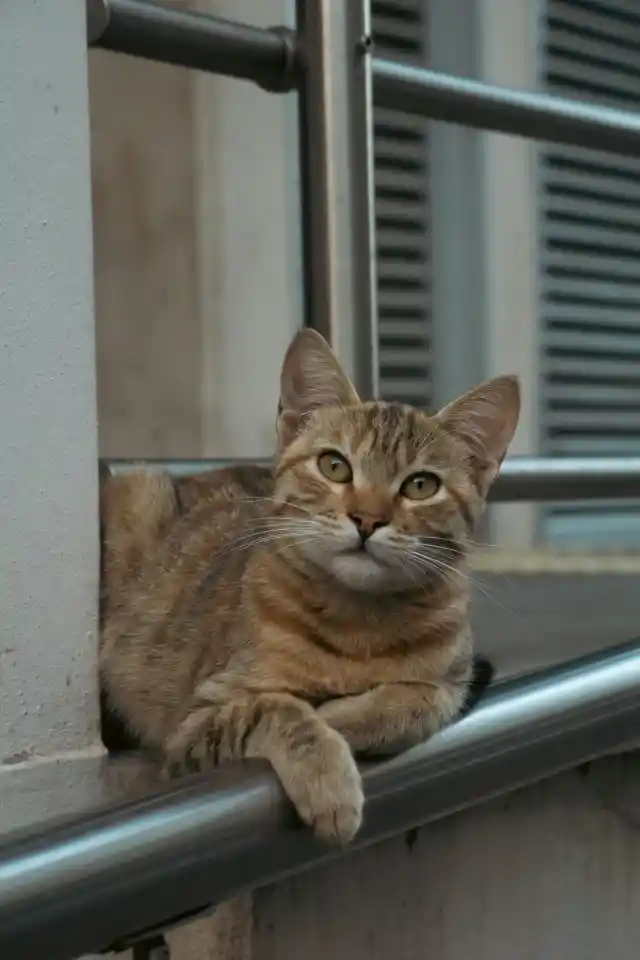
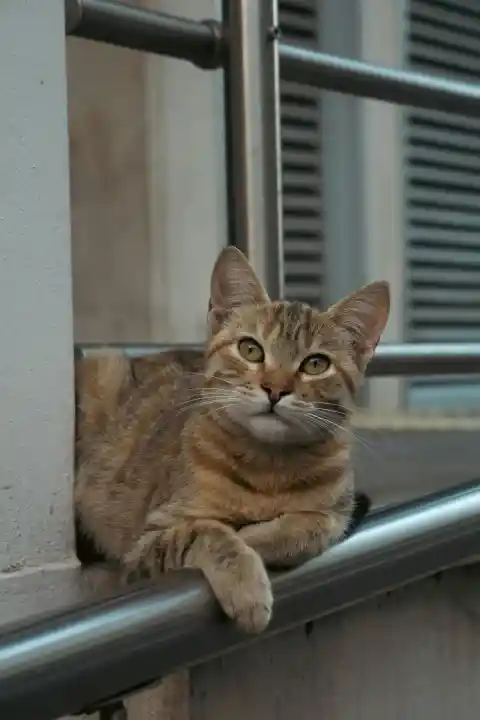
Cats prefer to show affection on their own terms and will come over to greet you only when they’re in the mood.
How Cats Soothe Themselves
Newborn kittens instinctively press against their mother's mammary glands while nursing, which helps stimulate milk flow. This behavior often continues into adulthood as a comforting habit.
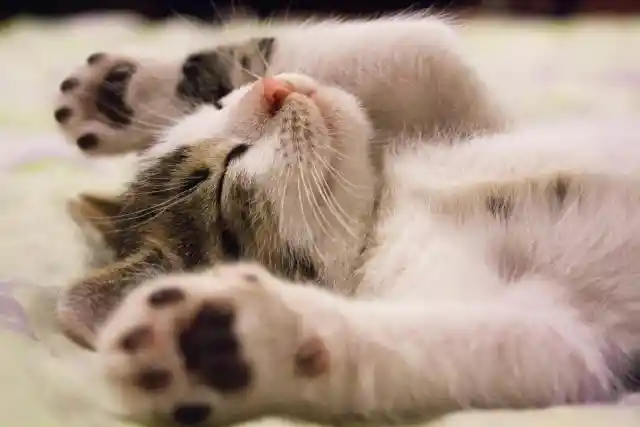
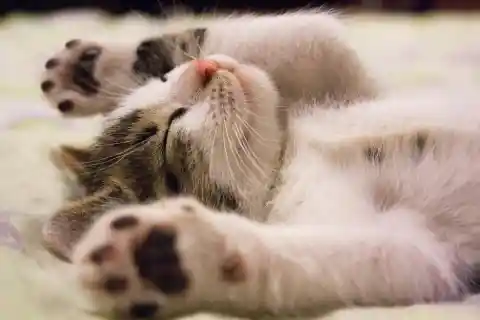
Adult cats tend to knead soft surfaces with their paws because it reminds them of the warmth and security of their mother. Experts believe this kneading is a sign that a cat is feeling content or trying to ease stress.
Why Do Cats Sniff You?
Cats are naturally inquisitive and enjoy taking in the scents of those nearby. When your cat comes up to sniff you, it’s often because they’re seeking out your unique and comforting scent.
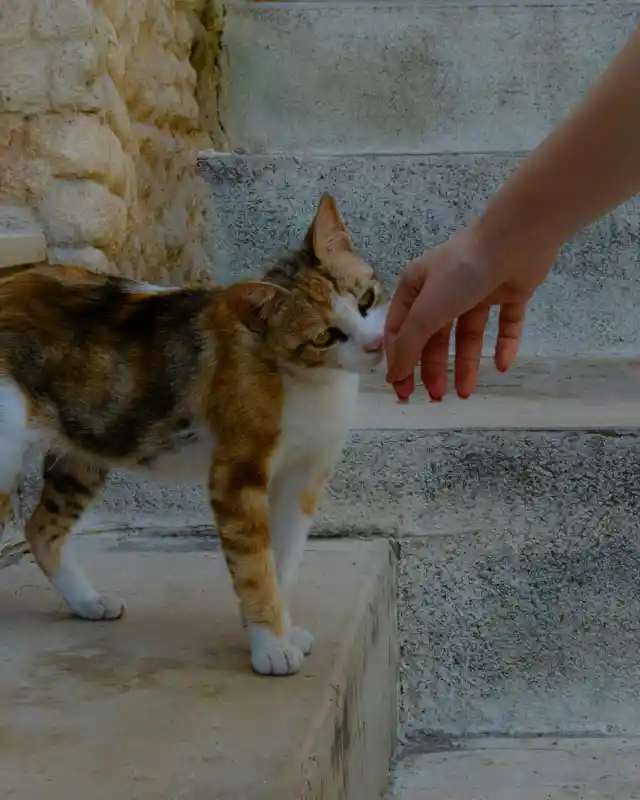
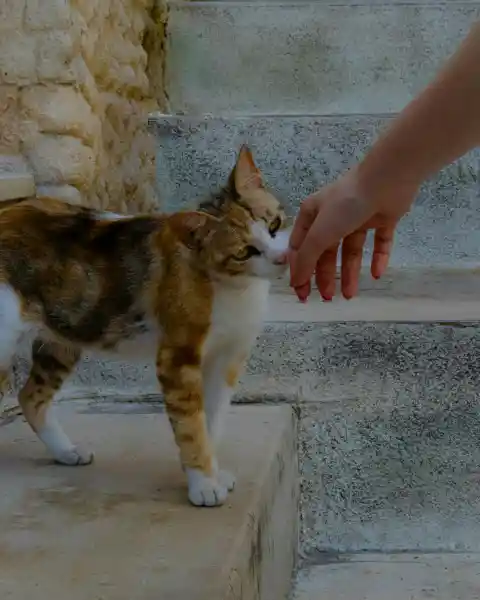
Areas like your hand or face are especially easy for them to smell and help reassure them of your presence. By breathing in your familiar scent, your cat feels more at ease and secure around you.
Why Do Cats Chew On Plastic?
If your cat starts chewing on non-food items like plastic, it could be a red flag. This behavior is often linked to a condition called pica.
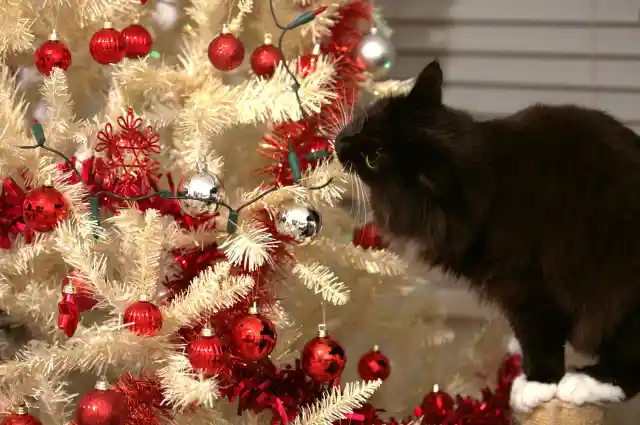
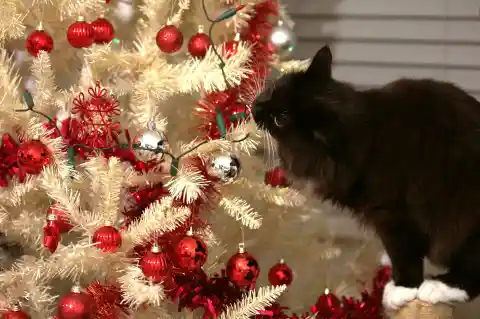
Experts suggest that cats may chew on such objects due to stress, anxiety, or a lack of certain nutrients. If this habit becomes frequent, it could harm their digestive health, so it’s best to seek advice from a veterinarian.
How Do Cats Express Frustration?
When a cat spots a bird outside the window, it might fixate on it with an intense gaze and start making a quick chattering sound. Many experts believe this chattering is a sign of frustration—the cat wants to hunt the bird but knows the barrier makes it impossible.
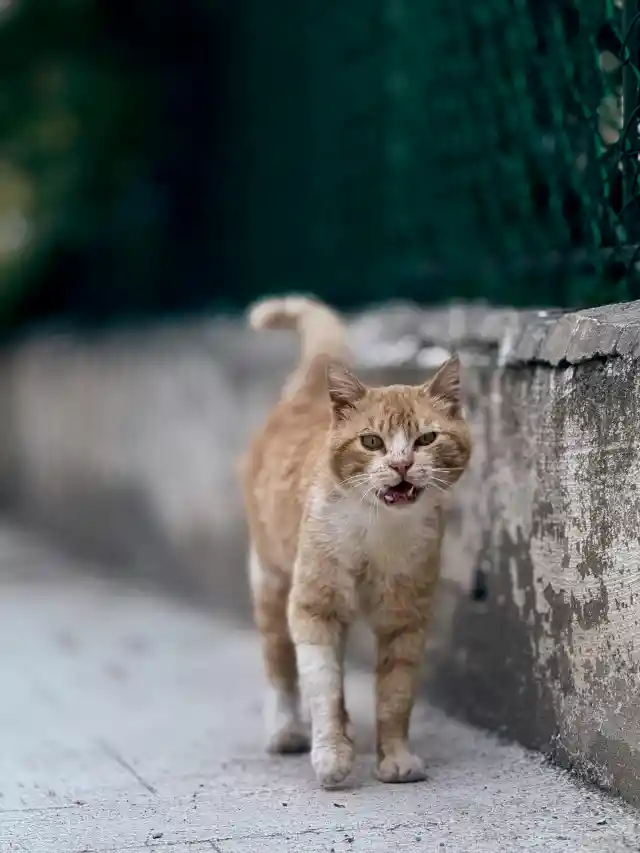
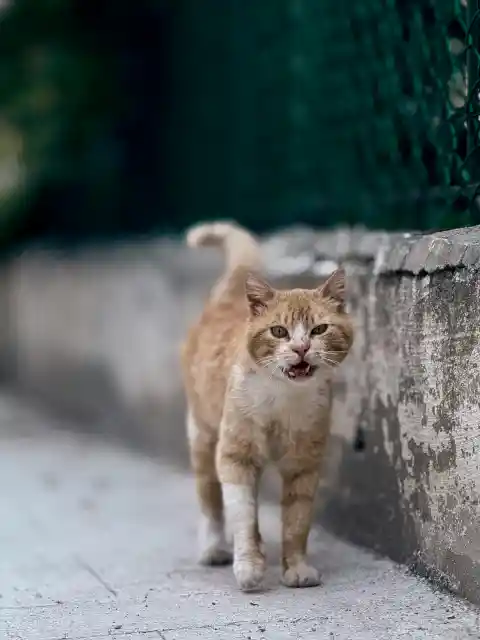
Others suggest it's an instinctive behavior, possibly helping the cat warm up its jaw muscles in preparation for a potential hunt.
How Cats Show They Trust You
In human interactions, turning your back and exposing your rear might seem rude, but in the feline world, it’s a sign of trust. When your cat does this, it’s letting its guard down and inviting closeness.
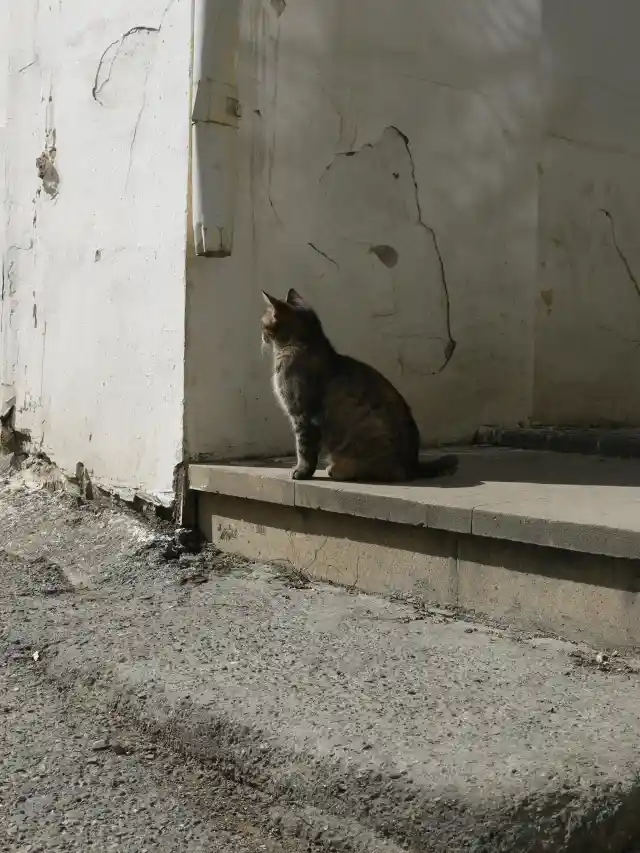
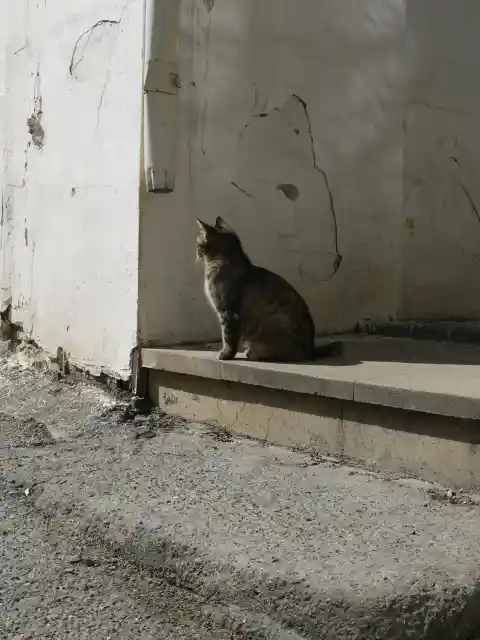
A raised tail signals openness and comfort. While the view might not be the most pleasant, it means your cat feels safe around you and is happy to receive attention or affection.
How Cats Invite Play
Cats often lie on their backs and roll on the floor, a behavior they only show when feeling safe since exposing their belly is a vulnerable act. While this posture helps them stretch, it can also be an invitation to play.
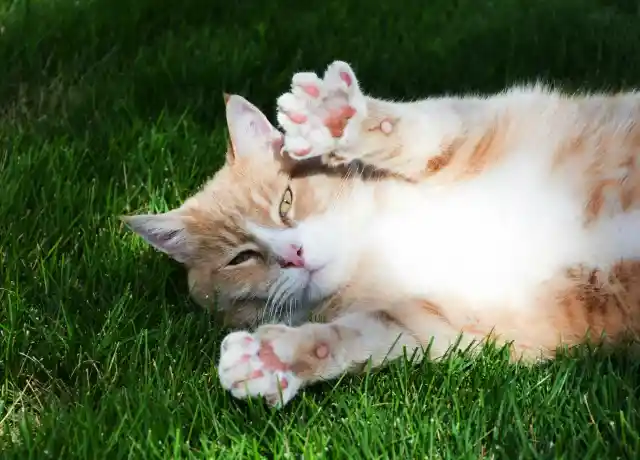
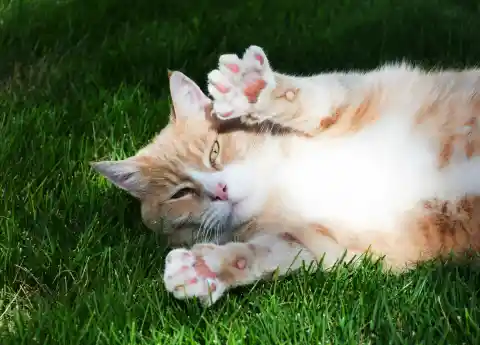
Experts suggest that such rolling indicates a desire to engage with you. Alternatively, your cat might be marking its territory by leaving its scent on your prized new carpet.
Why Do Cats Cry At Night?
Cats tend to roam the house while you’re asleep since they’re naturally more active at night. This usually isn’t a problem until their howling wakes you up. These whining noises often happen when a cat is trying to hunt something indoors.
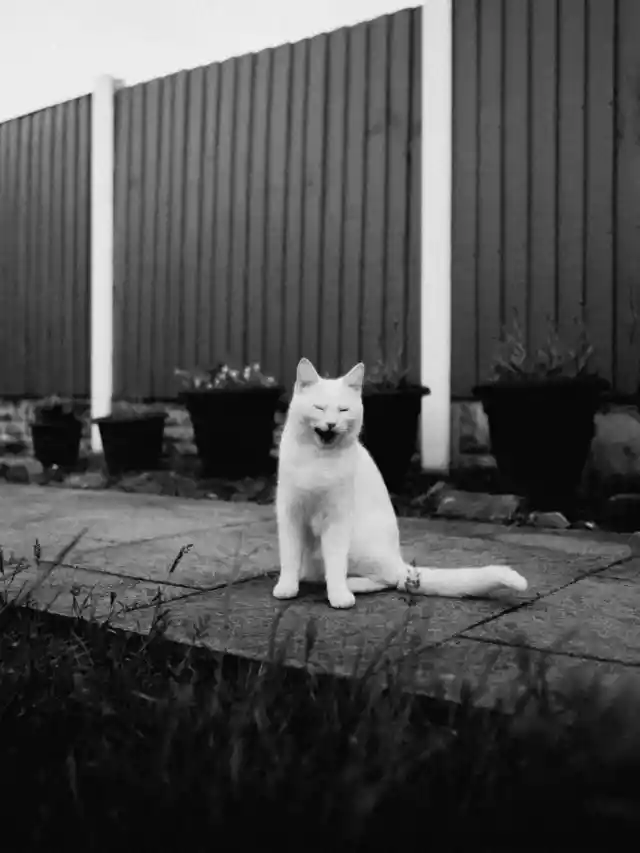
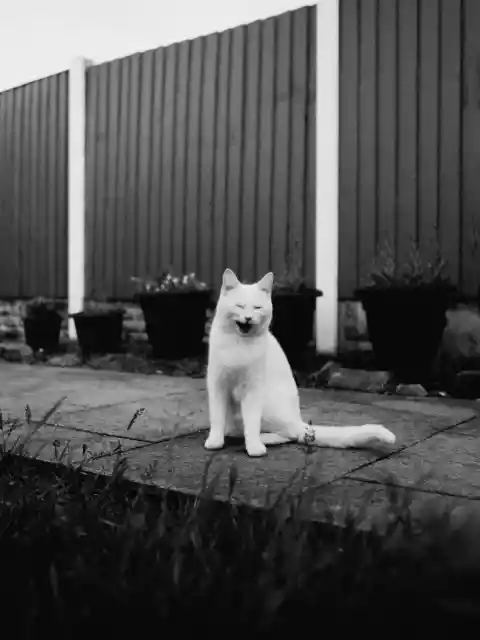
If they can’t find any mice or insects to chase, they may howl out of frustration. The best way to reduce this nighttime noise is by playing with your cat during the day to tire them out so they’ll rest peacefully alongside you at night.
Why Do Cats Play Hide And Seek?
If you have a cat, you've likely caught them tucked away in a small, hidden spot. Whether it’s a cardboard box or the area under the sink, cats tend to favor tight, enclosed spaces over open, cozy areas.
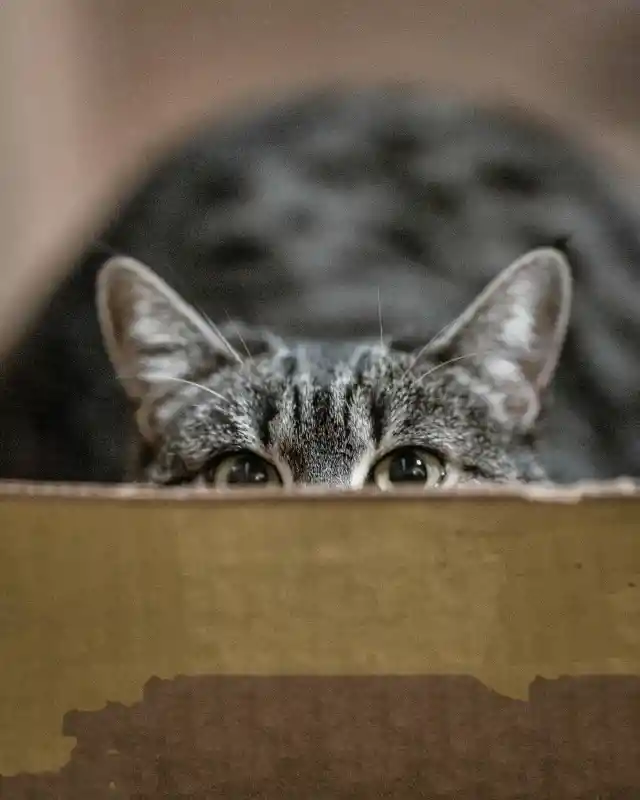
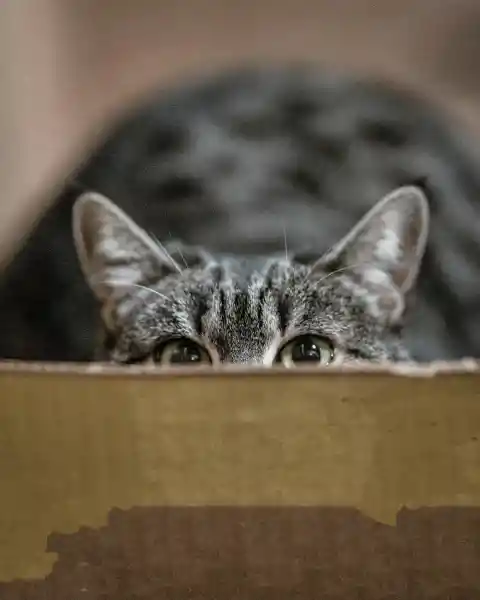
This behavior stems from their instinct to seek safety—wild cats often hide in small places like caves when they feel threatened. Even domesticated cats retain this natural urge to find secure hiding spots.
Signs Your Cat Is Agitated
Cats sometimes burst into a room at full speed, and this sudden behavior is often due to pent-up energy. Since indoor cats don’t have the chance to hunt, they can grow restless.
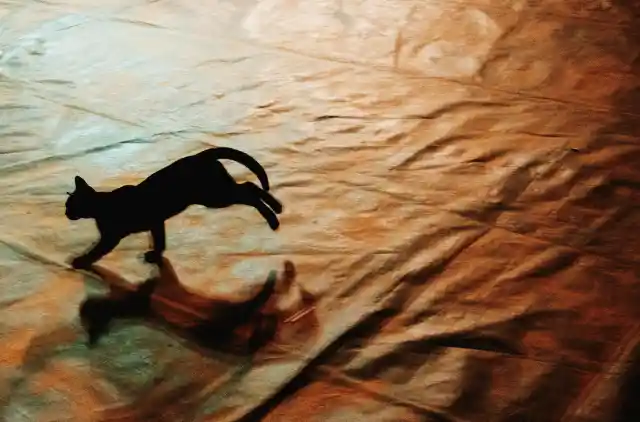
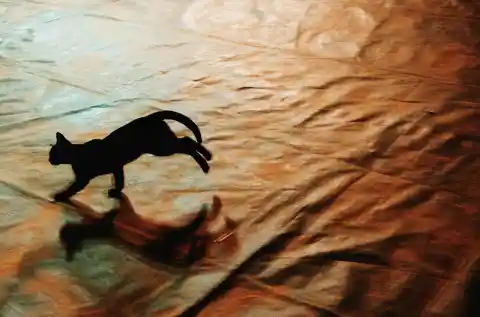
These quick, energetic sprints are one of the ways they release that built-up energy. If your cat does this often, it’s a good idea to engage them in more playtime to help them stay active and mentally stimulated.
When Your Cat Brings You Gifts
Most cat owners have, at some point, found themselves on the receiving end of a dead bird or mouse. While it’s not exactly pleasant, it’s oddly endearing. Your cat is offering you a gift. As kittens, their mothers brought them food—an act of care and inclusion.
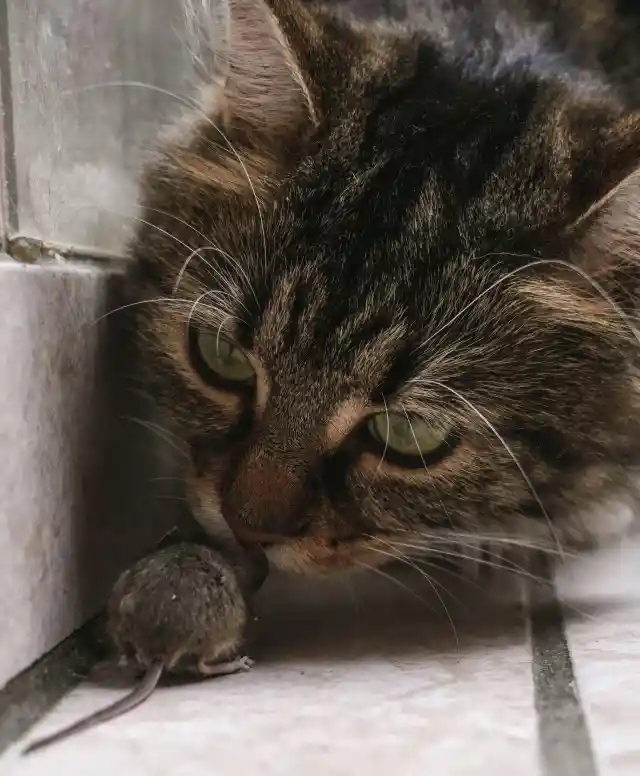
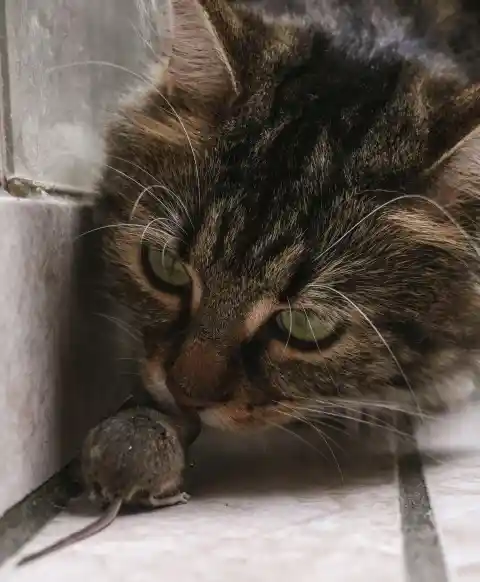
So when your cat does the same for you, it might be showing appreciation for your care. On the other hand, it could also just be looking for a bit of extra attention.
When Your Cat Feels At Ease
When a cat lies on its back with its legs stretched out, it’s a clear sign that it feels safe around you. This position leaves them exposed, particularly around the belly, making them vulnerable—something they’d only risk if they sensed no danger.
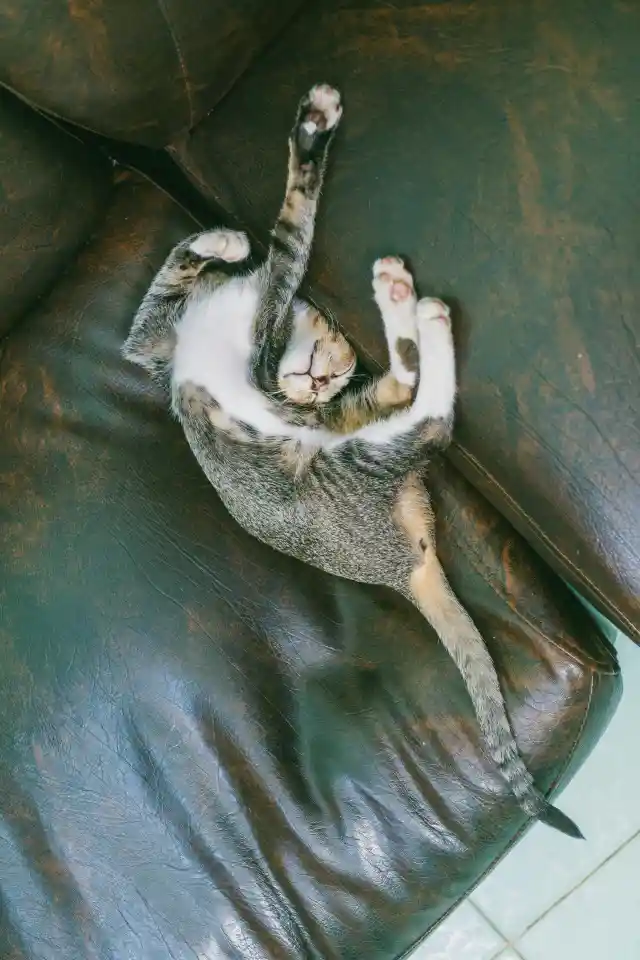
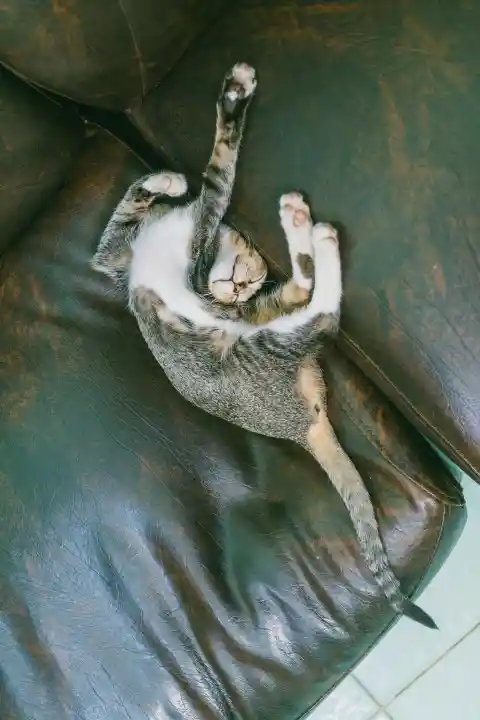
If your cat regularly relaxes like this, it’s a strong indication that they feel secure, happy, and at peace in your home. Well done!
How Cats Signal That Something’s Wrong
In the wild, cats instinctively bury their waste to avoid attracting predators—a habit they usually carry over to their litter box at home, which is helpful for owners.
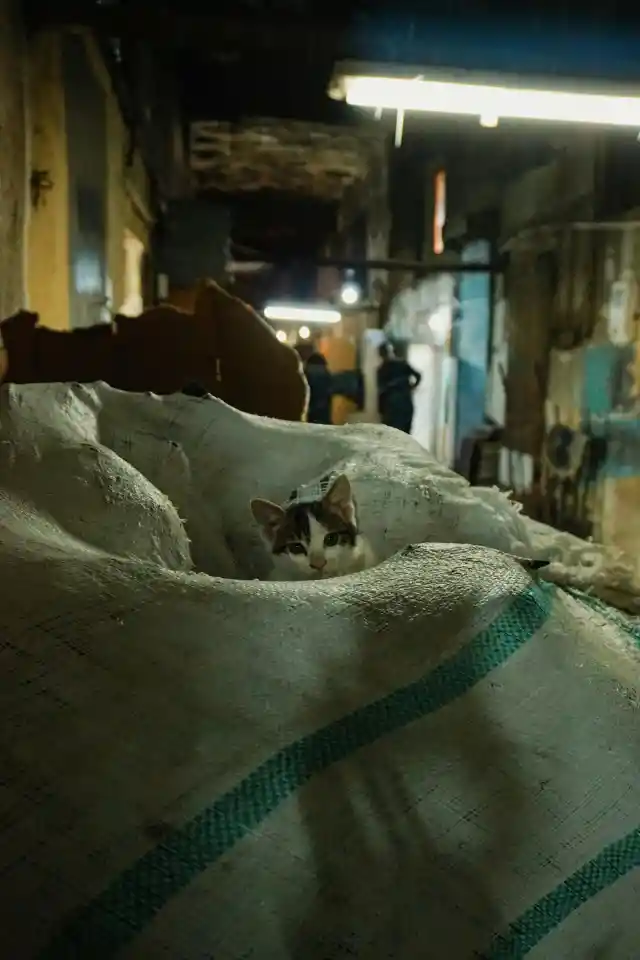
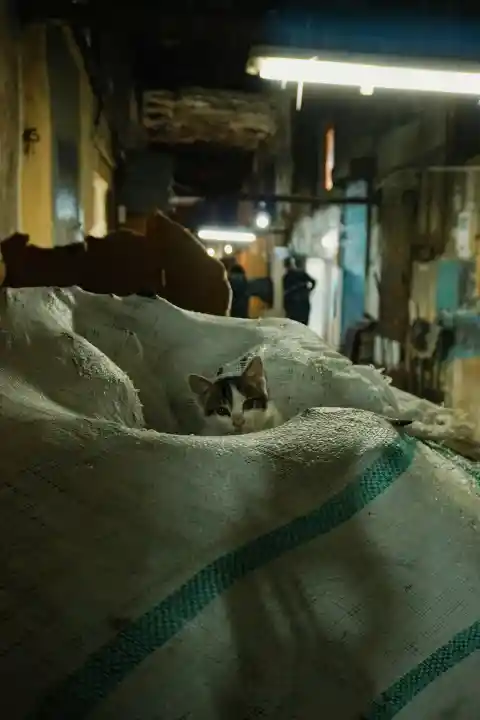
But if your cat suddenly stops covering its feces, it might be a warning sign. The issue could be as minor as a dislike for the litter box or something more serious, like stress, anxiety, or even an underlying health problem. It’s their way of letting you know something isn’t right.
How Cats Show They’re Restless
Cats use more than just their eyes to communicate—they also express themselves through their ears. If their ears begin flicking back and forth, it's a sign they may be irritated or on edge, and it’s best to give them space. Ears pointed forward typically signal that your cat is content and approachable.
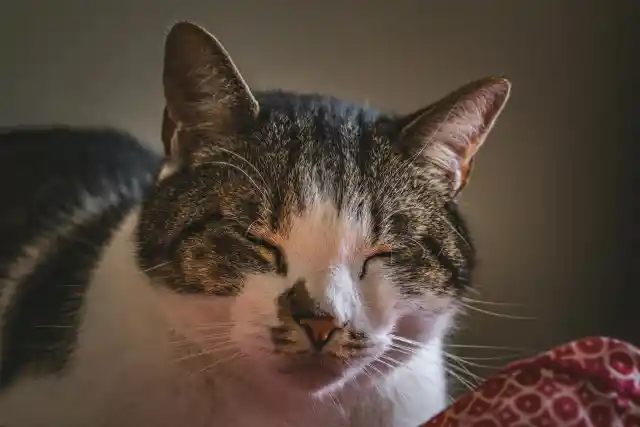
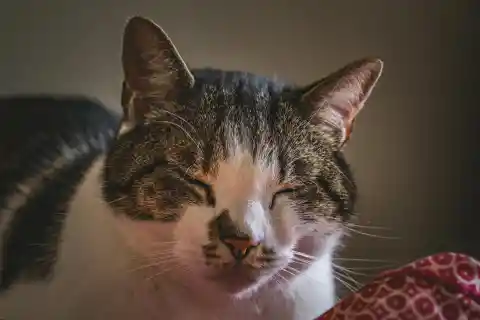
However, if the ears are turned back or pinned flat against the head, your cat is likely feeling defensive or upset. Watching their ears is a reliable way to gauge their mood.
When Cats Go After Your Feet
It’s not uncommon for cats to pounce on your feet out of nowhere, even when you’re just sitting still. Although it might seem like an ambush, it’s not a sign of aggression.
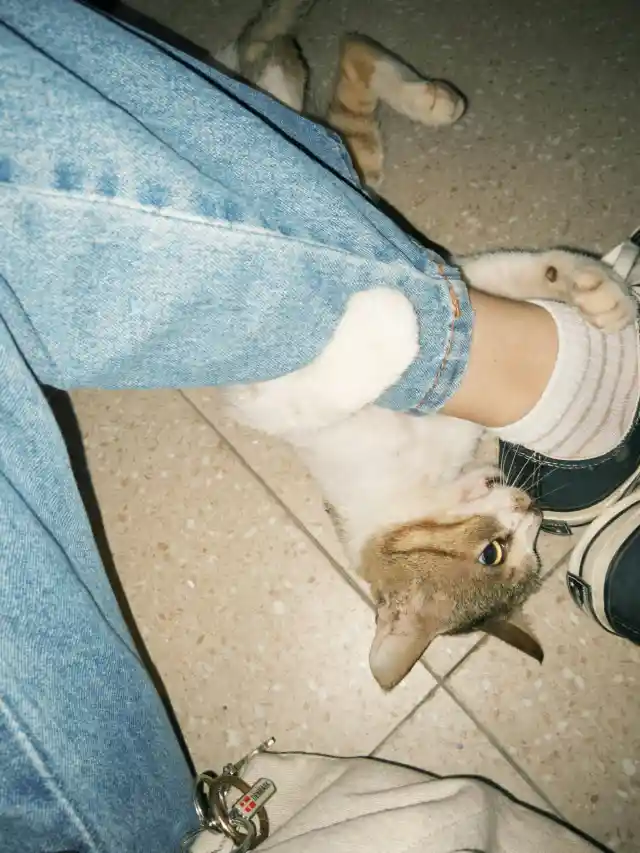
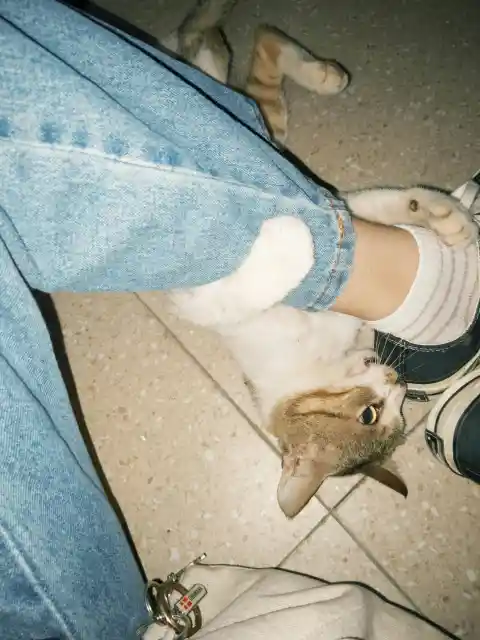
In most cases, your cat is simply trying to play or hone its hunting instincts. If this kind of play isn’t your thing, try redirecting their energy by offering a toy—they’ll usually shift their focus and leave your feet alone.
Cats Can Feel Lonely Too
While cats are often seen as independent and low-maintenance, they actually crave interaction and mental stimulation. To thrive, they need companionship—whether it’s from other cats or their human family.
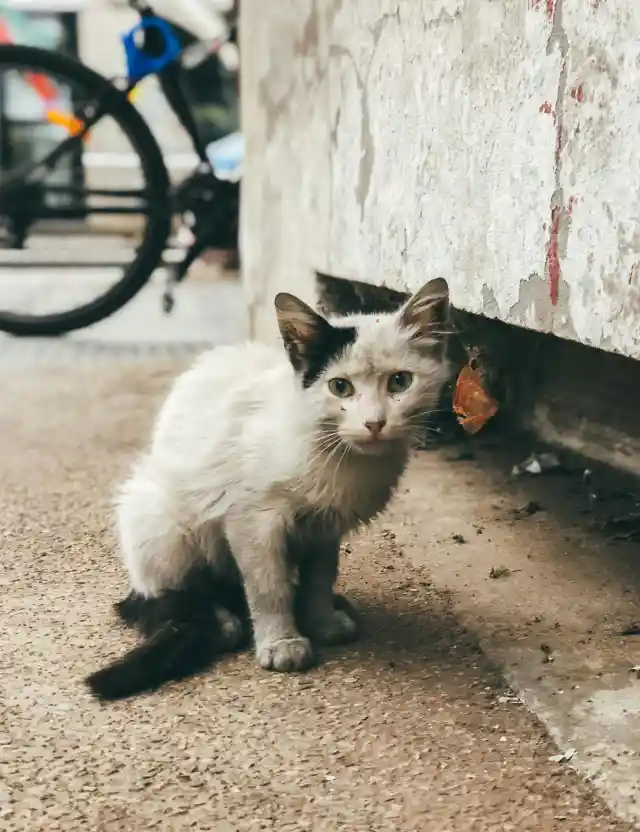
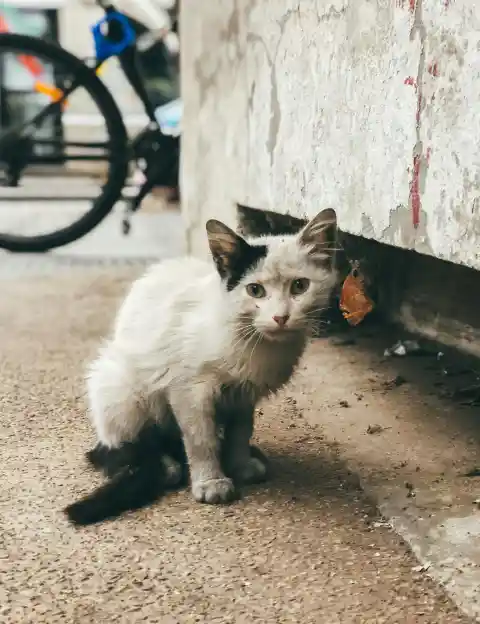
If you suspect your cat might be feeling isolated, watch for signs like clinginess, aggression, excessive grooming or fur pulling, and changes in litter box behavior. These may be subtle calls for more attention and care.
Malnutrition: A Hidden Warning Sign
While a plump, well-fed cat often reflects good health and care, the opposite can signal trouble. Malnutrition in cats may not be immediately obvious, but warning signs like a dull coat, weight loss, and low energy are clear indicators.
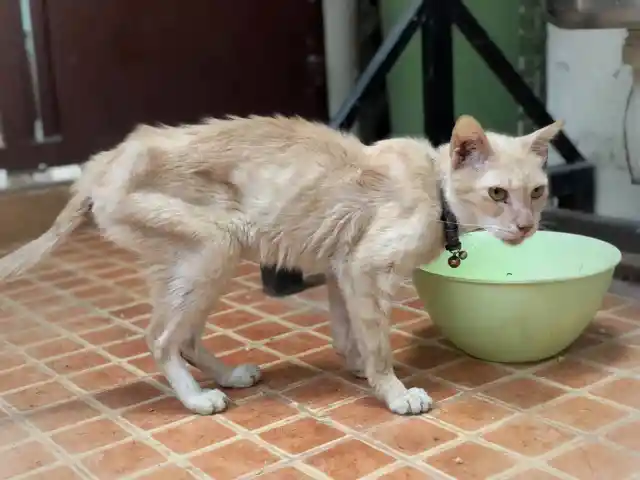
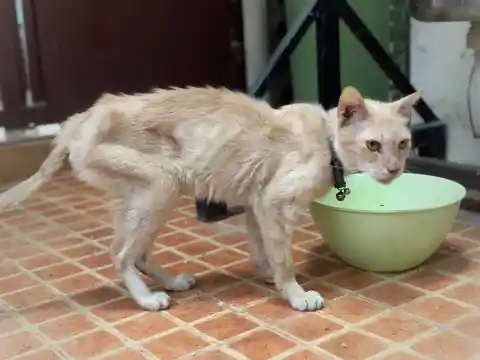
These symptoms are your cat’s way of saying, “I need better nutrition!” Ensuring they get the right balance of vitamins, minerals, and protein is essential for their overall well-being and vitality.
Cats Know Who You Are
Cats may not show affection as openly as dogs, but that doesn’t mean they don’t recognize their humans. Research has found that cats can identify their owners even after extended periods apart.
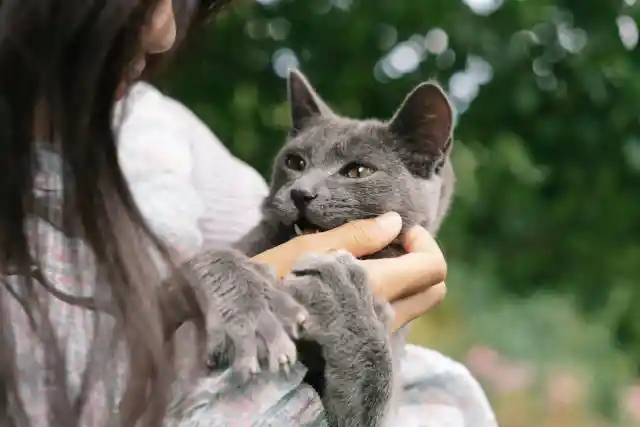
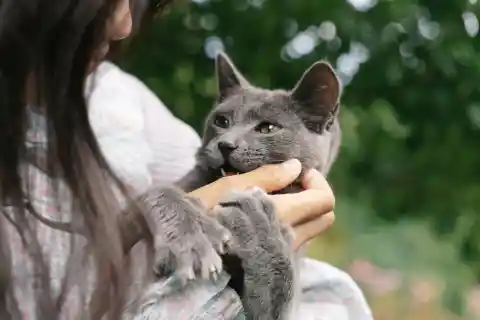
Since cats experience the world differently, they rely on a blend of visual cues, familiar sounds, and scents to recognize people. So when your cat curls around your legs or hops into your lap, it’s a clear sign they know you—and feel comfortable and secure by your side.
What’s That Flap On Your Cat’s Belly?
If you’ve spotted a loose, saggy flap of skin on your cat’s belly, don’t assume it’s just extra fat. This is actually the primordial pouch—a normal feature that serves several important purposes.
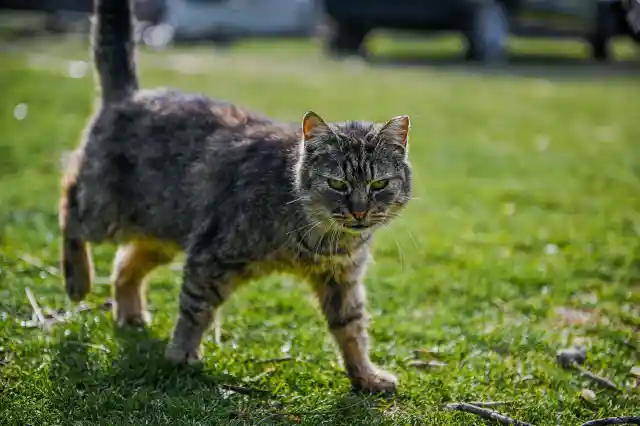
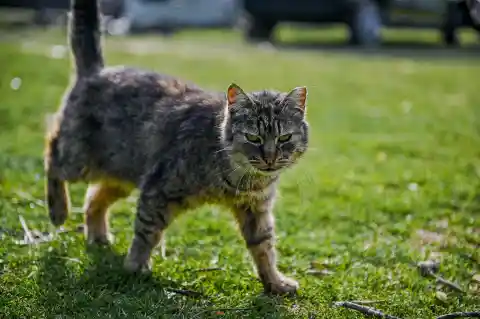
It helps protect vital organs during fights, boosts flexibility for stretching and quick movements, and even allows room for the stomach to expand after a big meal. Common in many cats, especially certain breeds, this pouch is a testament to your cat’s natural evolution and resilience.
Why Cats Withdraw
When a cat—particularly an older one—starts seeking solitude, it’s often a natural response tied to its instinct for survival. In the wild, vulnerable animals hide to protect themselves from predators, and domestic cats may do the same by retreating under furniture, into closets, or other quiet spots.
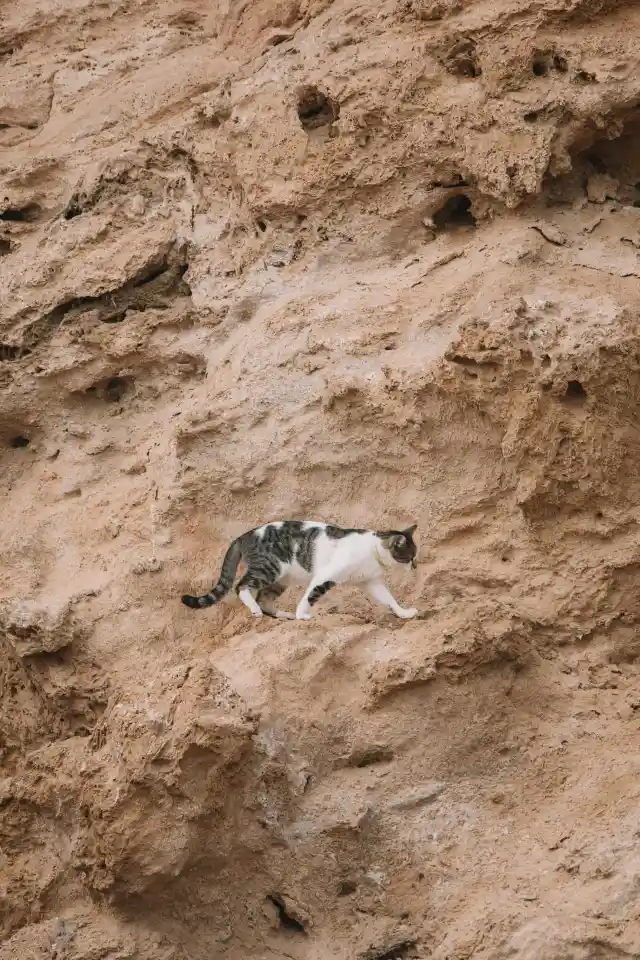
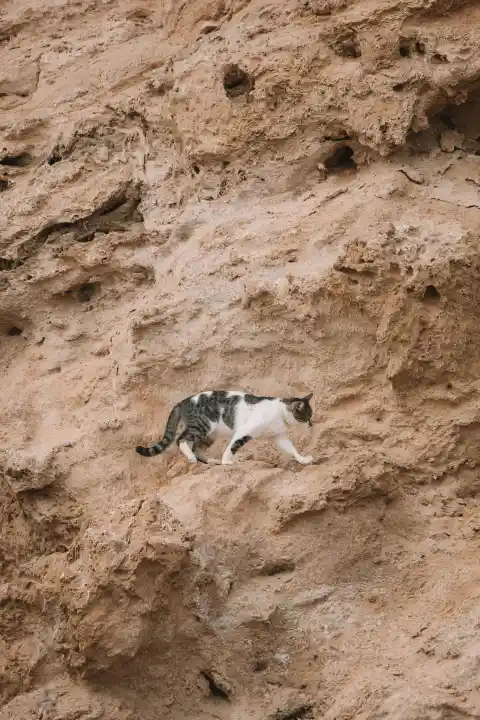
While difficult to witness, this behavior can be a sign that your cat is nearing the end of its life. During this time, it’s important to offer gentle support, comfort, and care to help them feel safe and loved.
Cats May Sense When Someone Is Nearing Death
Though science hasn’t confirmed that cats can predict death, some remarkable stories suggest they might sense it. One famous example is Oscar, a therapy cat who gained attention in 2007 for curling up next to patients just hours before they passed.
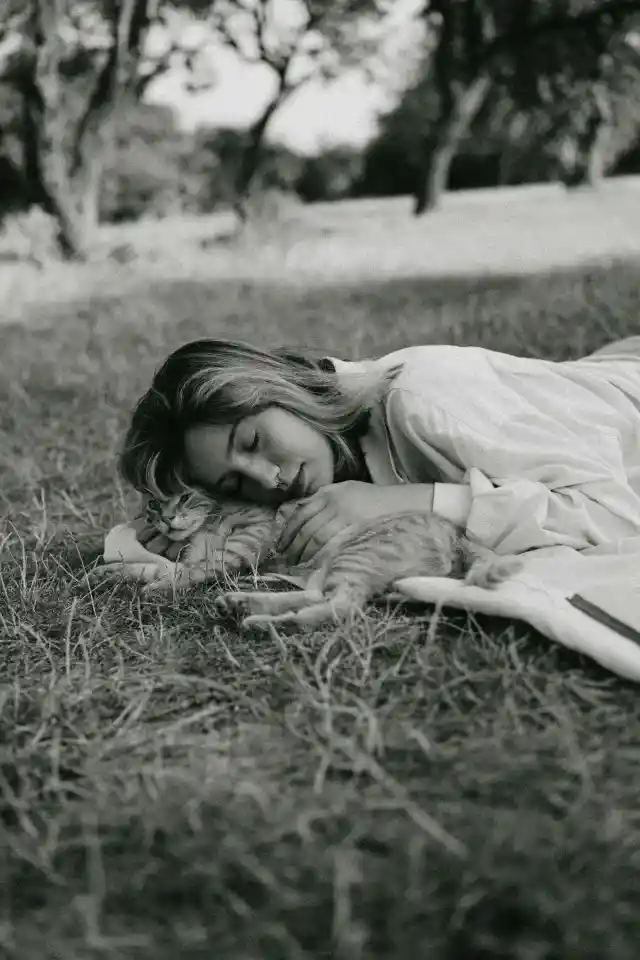
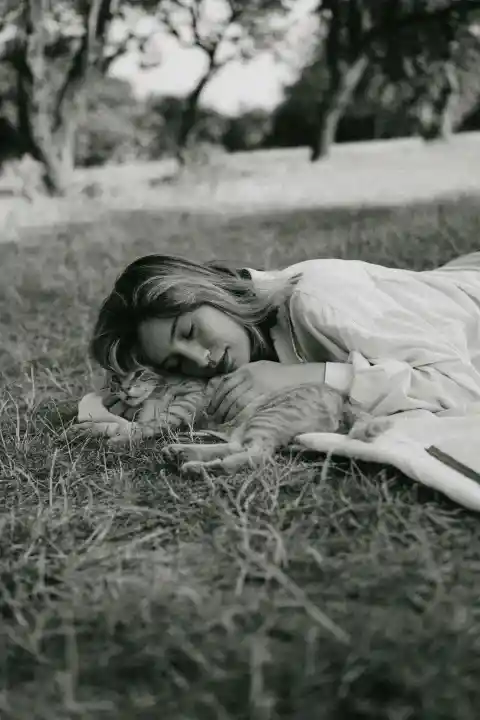
While it’s unclear whether cats truly foresee death or are simply drawn to warm, peaceful spots, their keen sense of smell and awareness of environmental changes likely play a role. Regardless of whether it’s instinct or coincidence, cats often offer comfort and emotional support—especially when you're ill or stressed, sometimes even through gentle licks or increased affection.
Tiny But Mighty: Pocket-Sized Cats
While some cats, like the Maine Coon, can grow impressively large, there are several breeds that stay adorably small. Breeds such as the Singapura, Munchkin, and Cornish Rex typically weigh just 4 to 8 pounds and have charmingly compact frames. Just imagine a tiny ball of fluff no bigger than two gravy packets!
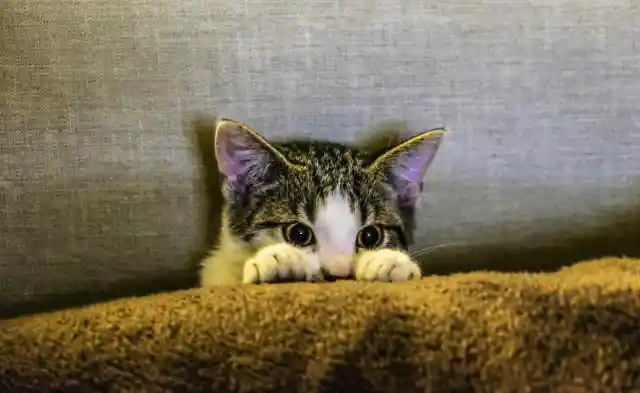
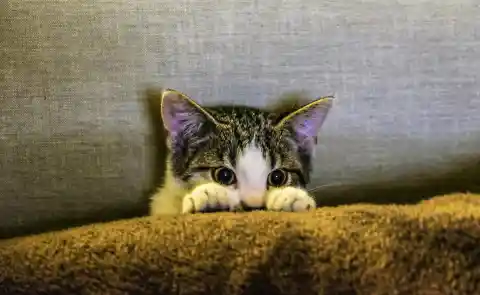
These miniature felines make perfect companions for those who love to cuddle with pint-sized pets. And despite their size, they’re often full of personality and playful energy.
Why Cats Love Sleeping In Sinks
It might seem odd, but many cats are drawn to bathroom sinks for their naps. There are a few reasons for this quirky behavior. The smooth, cool surface is soothing, and the curved shape offers a snug, secure feeling that cats enjoy.
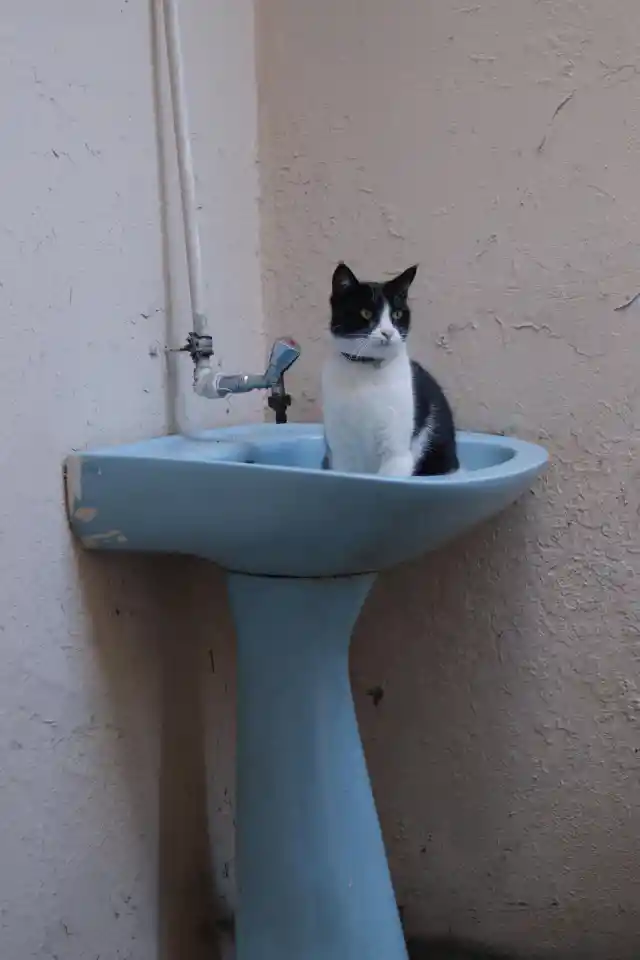
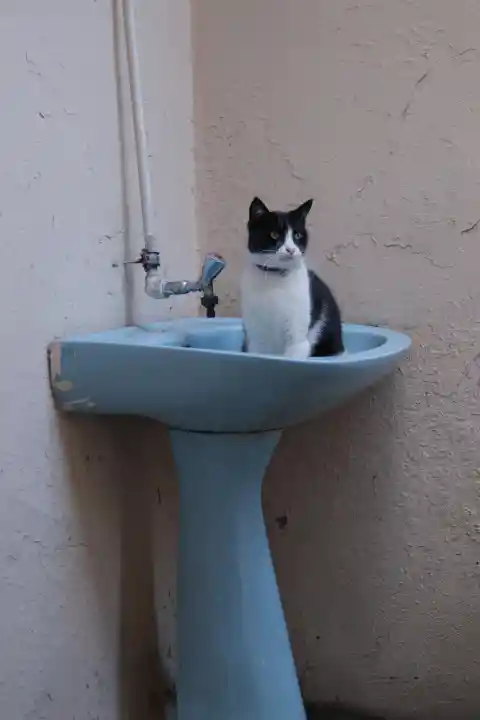
Sinks are often located in quiet, elevated spots—two features that appeal to a cat’s sense of safety and comfort. Generally, this habit is harmless. However, if your cat frequently seeks out water or appears overly thirsty, it could signal a health issue, and a visit to the vet is recommended.
Using a Gravity Feeder For Your Cat
A gravity feeder offers a convenient, hands-off way to keep your cat’s food bowl full, giving them access to meals whenever they feel hungry. It eliminates the need for strict feeding schedules and ensures there's always food available.
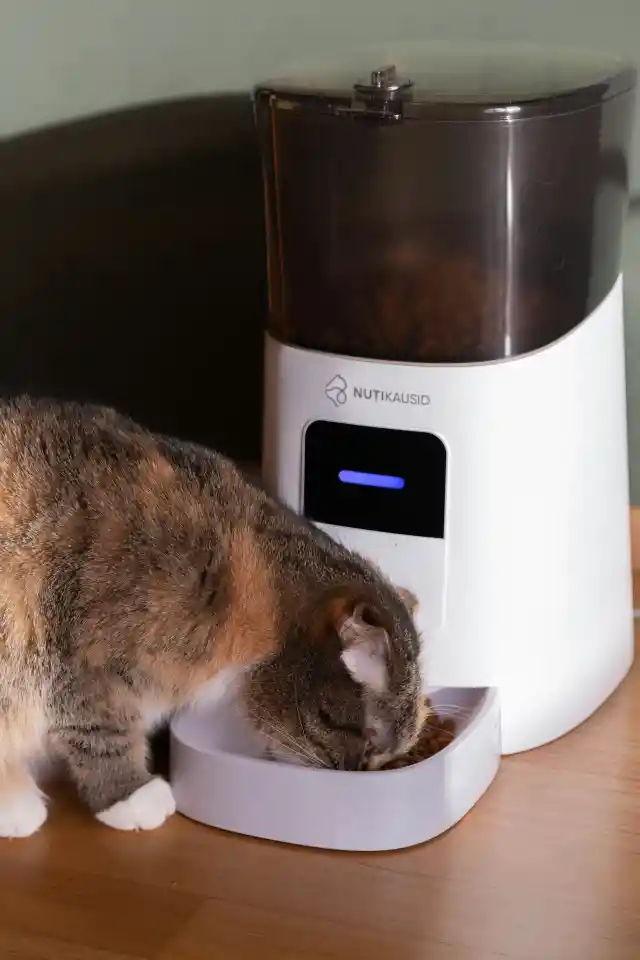
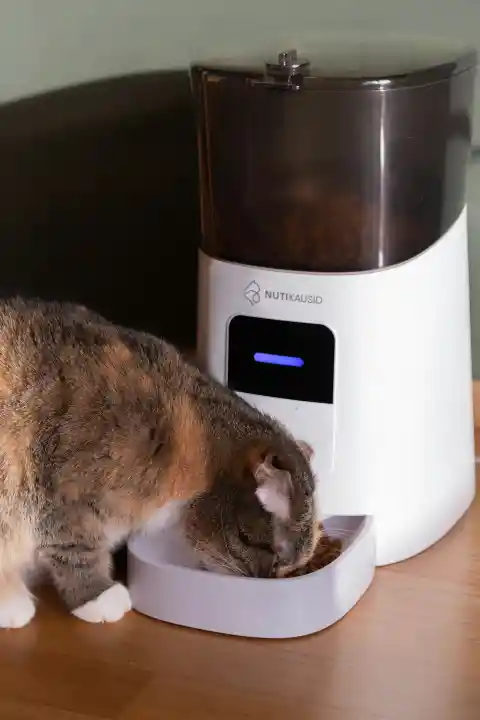
However, it’s important to monitor your cat’s eating habits, as this setup can lead to overeating if they don’t regulate themselves. Used wisely, it’s a simple solution that can make both your life and your cat’s mealtime easier.
Why Cats Sleep All Curled Up
Cats are known for their love of sleep, and the position they choose—often curled up like a little ball—serves more than just cuteness. This “fox position,” where they tuck their paws and tail around themselves, helps them conserve body heat, just like wild animals such as foxes do.
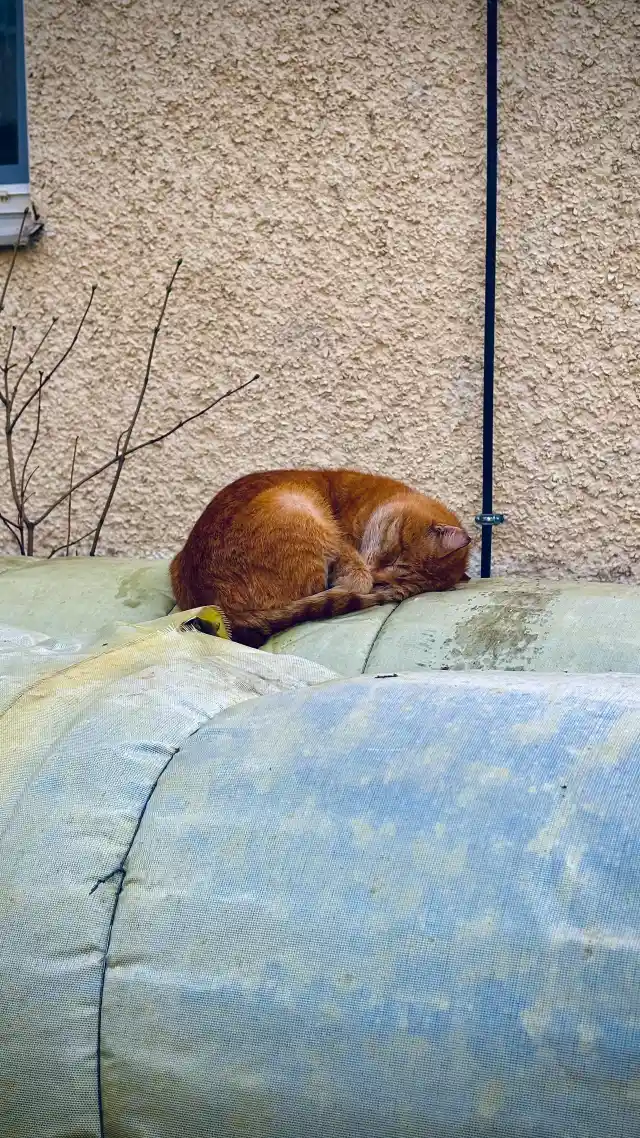
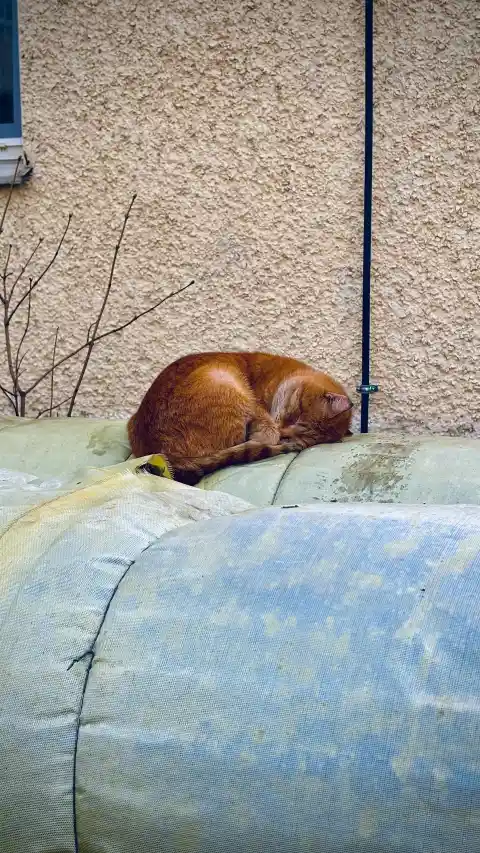
Even though your cat is domesticated, this instinctive pose keeps them warm and protected while they rest.
Cat Clashes
Just like people, cats can have the occasional flare-up. Territorial instincts run deep in felines, so when another cat encroaches on what they consider their space, their first reaction may be to lash out.
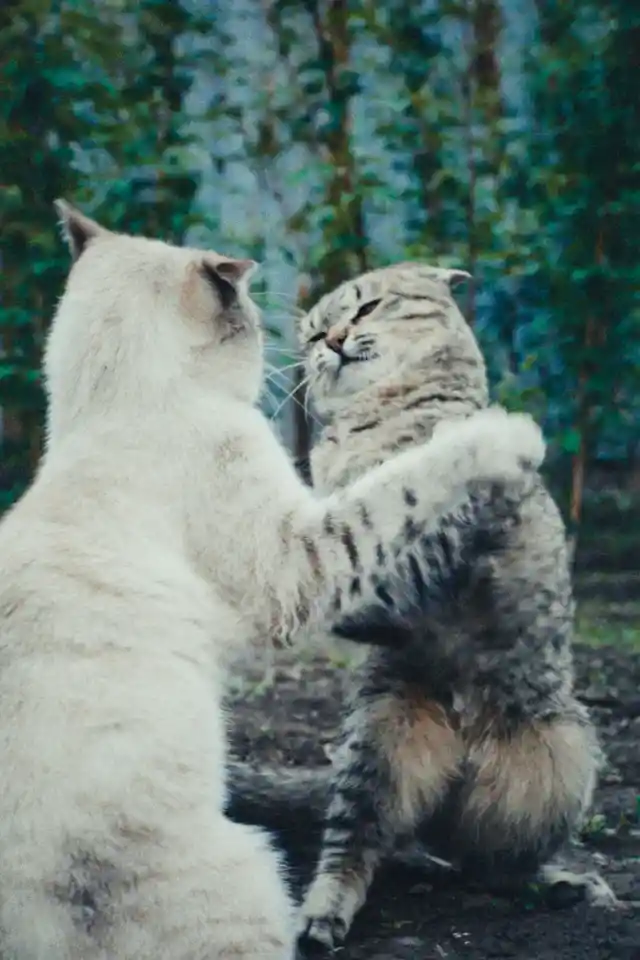
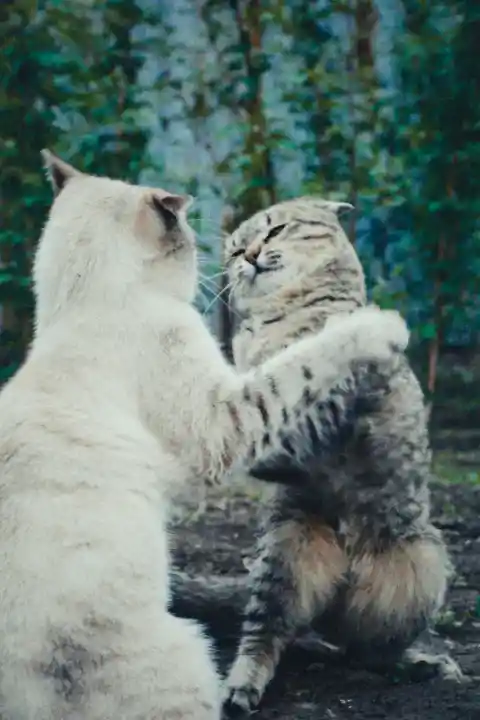
These confrontations are often more about establishing boundaries than causing harm. In many cases, it's harmless behavior—part of how cats explore, interact, and understand both their environment and fellow cats.
Why Your Cat Sleeps So Much
If your cat seems to spend most of the day napping, there’s no need for concern. Kittens need plenty of sleep to support their growth, as sleep triggers the release of essential growth hormones. Even adult cats continue to sleep a lot—usually to conserve energy.
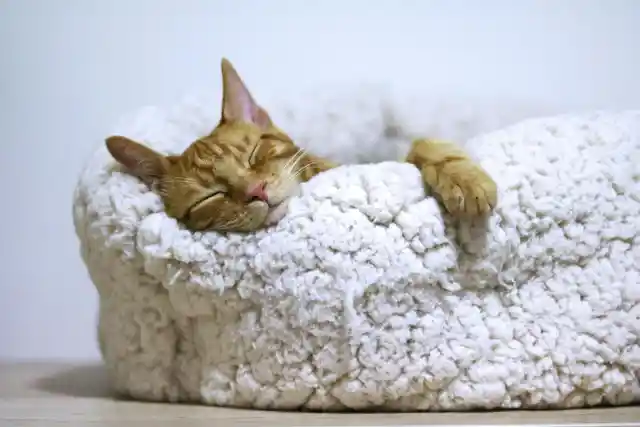
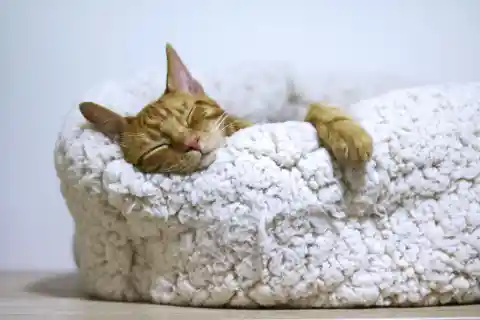
This behavior is rooted in their wild instincts, where hunting required bursts of intense energy followed by long periods of rest. If your cat seems unusually sleepy, try engaging them in more playtime to see if they’re simply bored rather than tired.
Why Your Cat Doesn’t Seem To Listen
Cats are highly intelligent and attuned to body language, but they don’t grasp human words the way we might hope. When it comes to discipline, tone of voice plays a much bigger role than the actual words you use. Cats respond to emotional cues, not specific instructions.
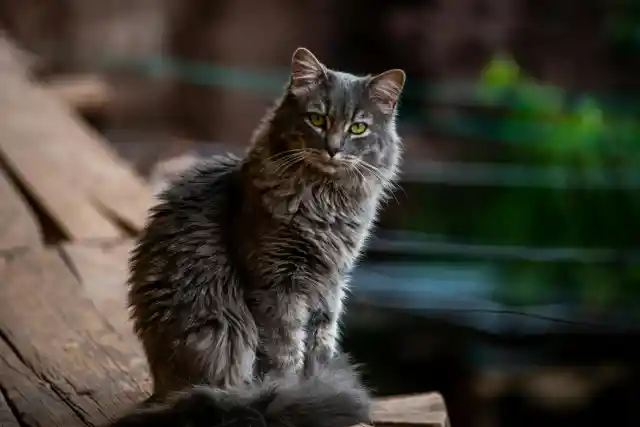
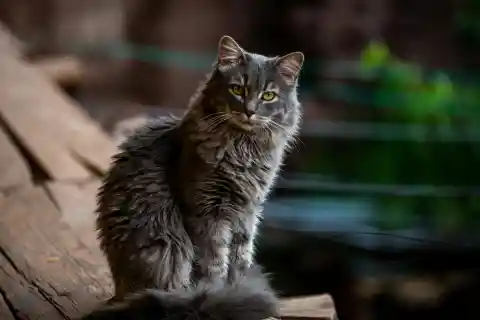
So if you gently tell them not to jump on the counter, they’ll likely ignore you. Instead, use a firm, clear tone to convey disapproval—they’ll understand that much more effectively.
Why Cats Purr
Purring is one of the most mysterious sounds cats make, and surprisingly, experts still don’t fully understand it. While we often associate purring with contentment, it’s actually a form of communication that can mean a range of things.
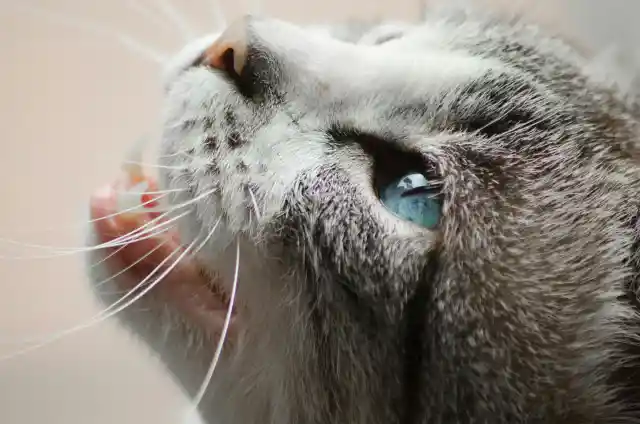
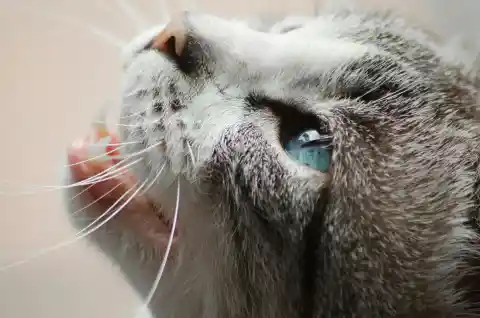
Cats may purr when they're happy, but they also do it when they're stressed or unwell, using the soothing vibrations to calm themselves. That’s why a purring cat curled up beside you can feel so comforting—it’s their way of relaxing, and that calmness tends to rub off on you too.
When Your Cat Follows You To The Bathroom
Though cats are known for their independence, they can be oddly clingy—especially when you head to the bathroom. Many cats insist on following their owners during these private moments, and while the exact reason isn’t fully understood, experts suggest it’s often about comfort and security.
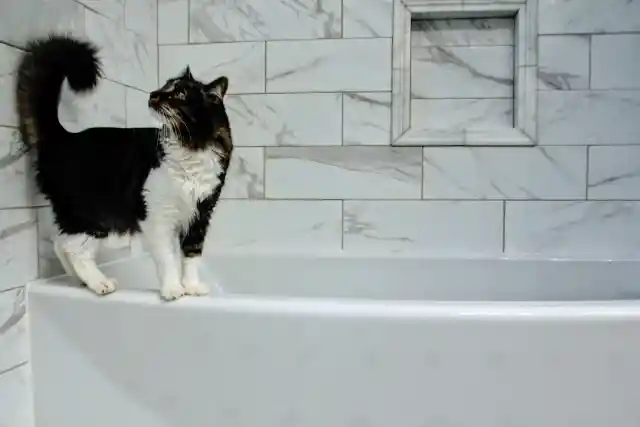
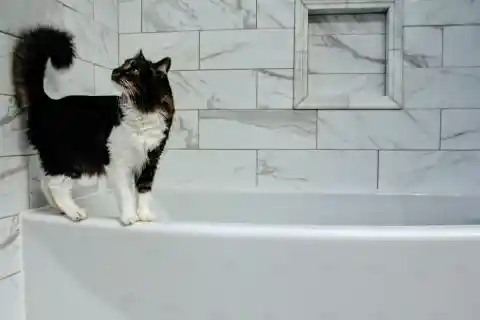
Some believe cats feel vulnerable when their humans are out of sight, prompting them to stick close. Others think it's simple curiosity—your cat just wants to know what’s happening behind that closed door.
What It Means When Your Cat Wags Its Tail
Unlike dogs, tail wagging in cats doesn’t mean they’re happy to see you. In fact, if your cat’s tail is swishing back and forth, it’s usually a sign that they’re irritated or want some space.
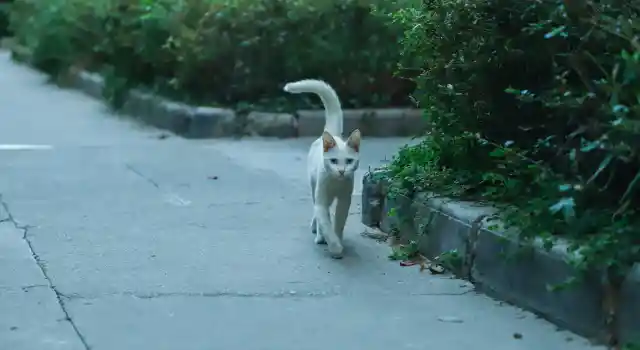
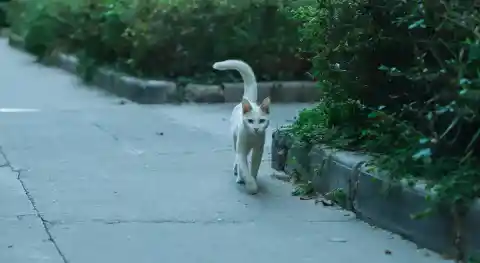
It's their way of saying, “Leave me alone.” However, a twitching tail can signal something different—curiosity or alertness. If you notice your cat’s tail flicking slightly, it likely means they’re focused on something that’s caught their attention nearby.
Why Your Cat Is Hissing
A hissing cat is almost always signaling distress. While it can indicate anger or irritation, hissing is more often a reaction to fear. If your cat feels threatened—by an unfamiliar person, animal, or situation—it may hiss as a warning to keep others at a distance.
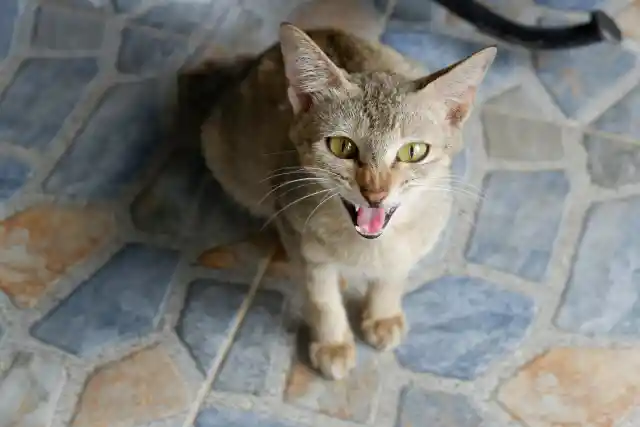
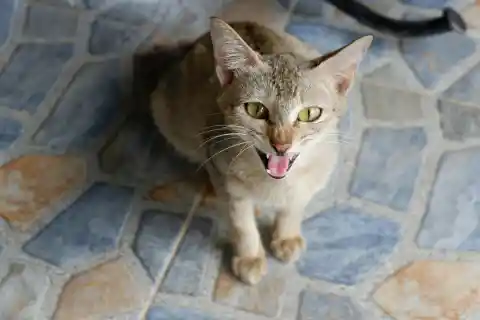
It’s their way of saying “back off.” If you hear your cat hissing, it’s best to give them space, as they’re trying to calm themselves and don’t want to be touched at that moment.
Why Cats Knock Things Off The Table
If you’ve ever watched your cat casually swipe a cup off the table, you’re not alone. This behavior might seem mischievous, but experts believe it has roots in instinct. In the wild, cats often bat at their prey to test if it’s alive or safe to eat—knocking objects mimics that hunting behavior.
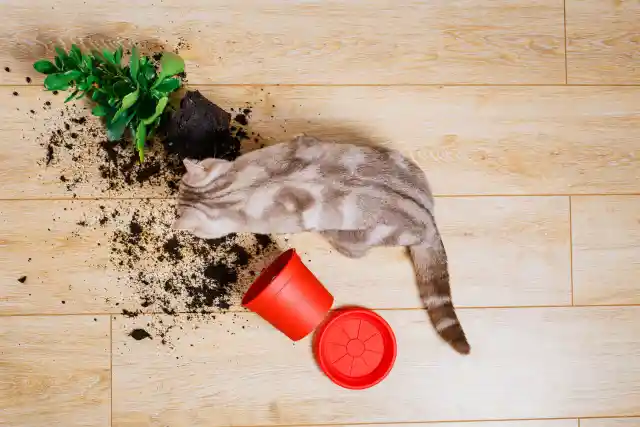
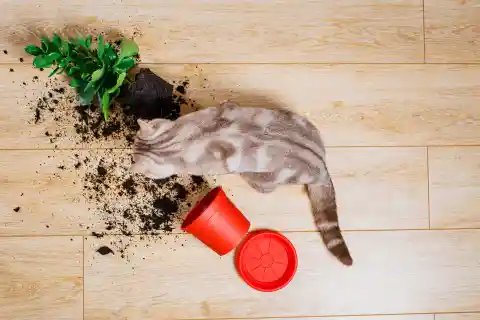
On the other hand, cats are also easily bored and crave stimulation. If they knock something over, it might just be their way of entertaining themselves—or getting your attention.
Pay Attention To Where Your Cat Relieves Itself
Cats are naturally tidy and usually use a litter box, covering their waste afterward. So if your cat starts going outside the box, it’s often a sign that something’s wrong.
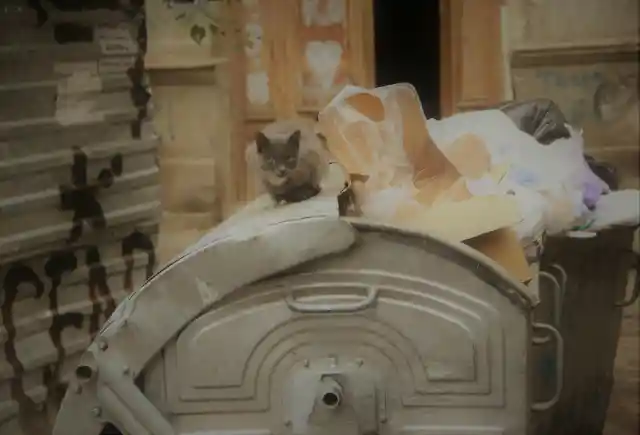
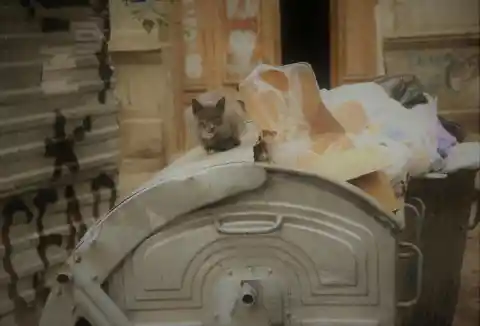
The issue could be as simple as disliking the type of litter or where the box is placed. Try relocating the box first to see if that helps. If your cat still refuses to use it, a trip to the vet is a good idea, as it might point to a medical problem that needs attention.
Why Cats Go Wild For Catnip
Catnip is a fragrant herb that sends many cats into a playful frenzy. This reaction is due to a compound in the plant called nepetalactone, which triggers an intense response in a cat’s nasal receptors. The result? Rolling, meowing, and behavior that resembles feline euphoria.
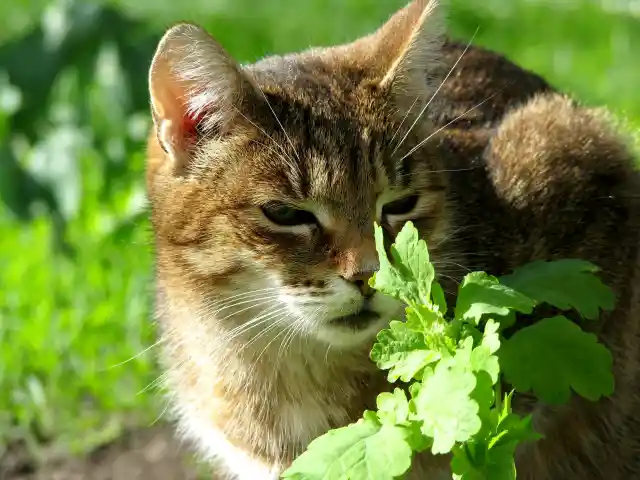
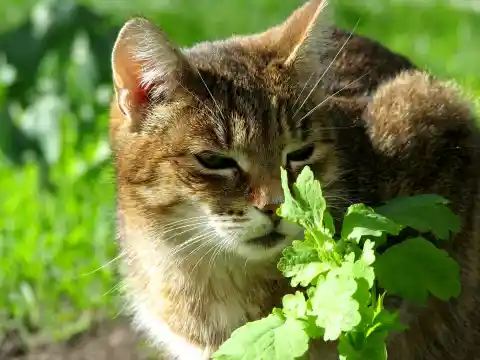
Essentially, catnip gives your cat a brief high that lasts around ten minutes. Interestingly, this effect isn’t limited to house cats—even lions and tigers can be affected. So, if you’re enjoying a fun night in and want your furry friend to join the party, catnip is their version of a buzz.
How Cats Express “I Love You”
Cats use their eyes to communicate a lot, which has made scientists realize that their gaze says more than words. When a cat fixes its eyes on you, it’s usually trying to catch your attention. But if the stare is intense and unblinking, it could be a sign of aggression, and it’s better to avoid eye contact.
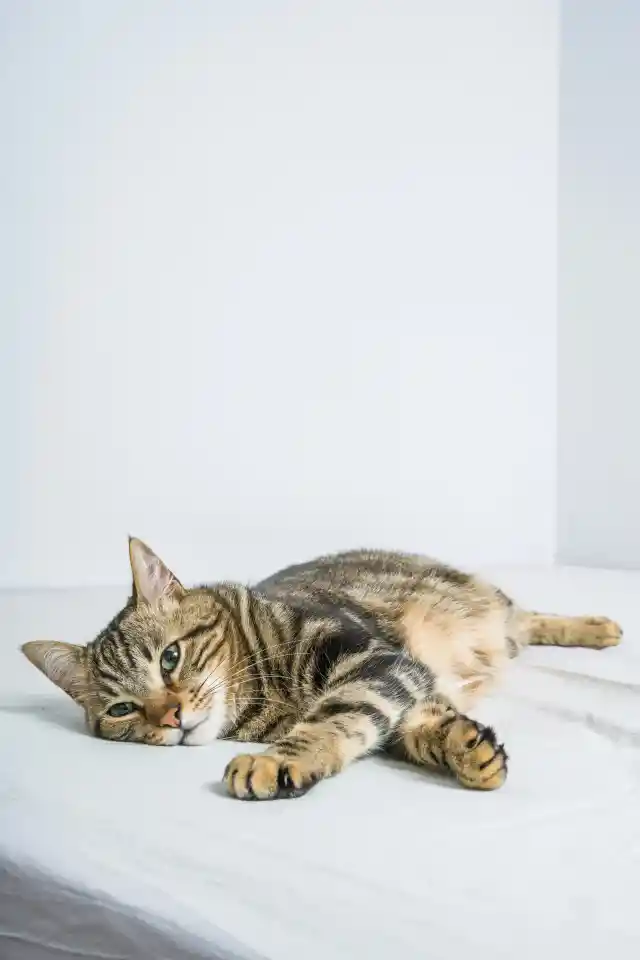
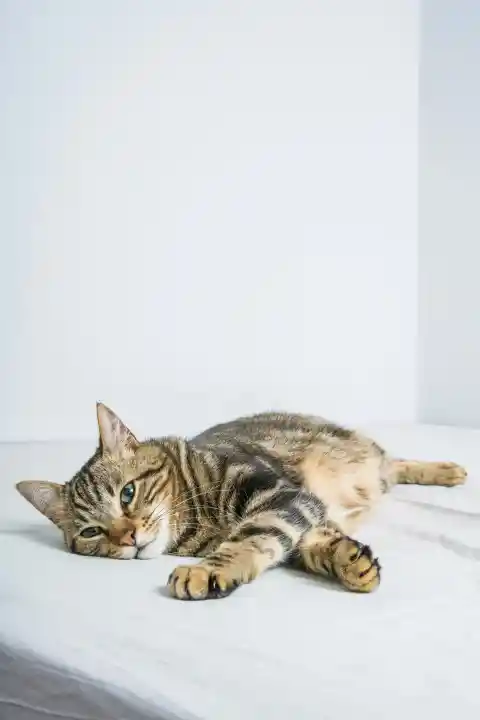
On the other hand, when a cat looks at you and slowly blinks, it’s their way of showing affection—a gentle, feline version of saying “I love you.”
Why Does Your Cat Bite Its Nails?
Much like humans who bite their nails when feeling anxious, cats may do the same for similar reasons. Sometimes, nail biting in cats is a response to boredom, or it could simply be part of their grooming routine.
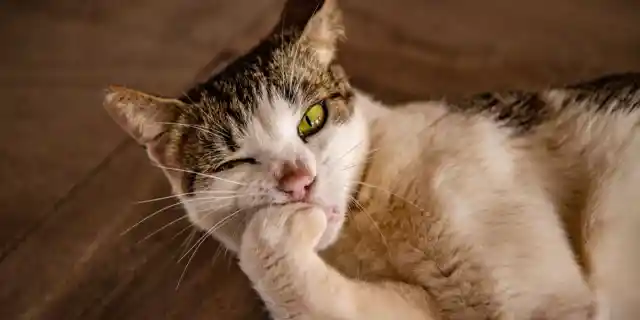
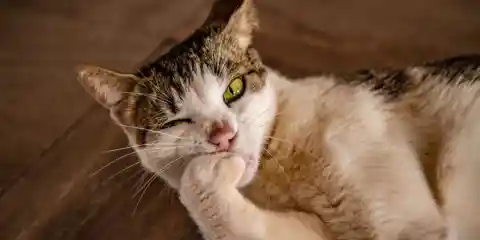
However, if your cat is biting its nails excessively, it might signal an underlying problem—such as parasites or a medical condition—that’s causing discomfort or anxiety.
Why Your Cat Sleeps On Your Chest
Few things feel better than lying down after a long day and having your cat curl up on your chest. That sense of comfort you feel is mutual. Cats choose to sleep on your chest because it makes them feel safe and secure.
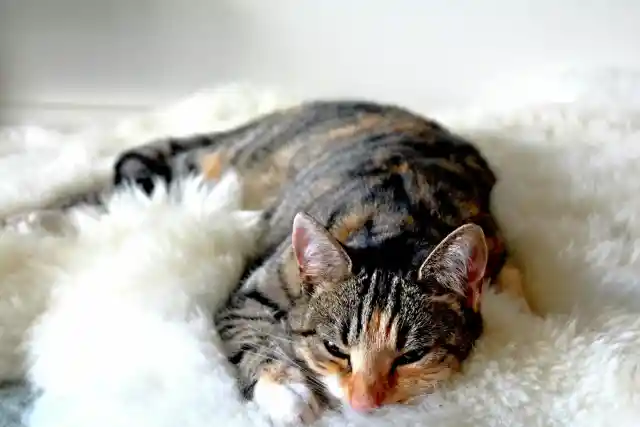
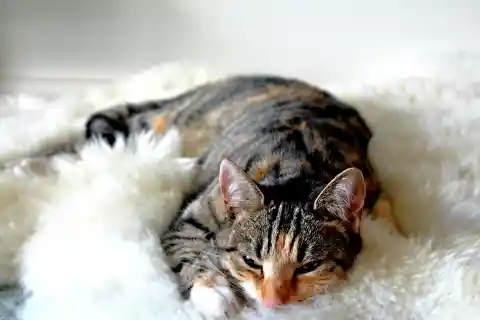
They’re drawn to your scent, the rhythm of your breathing, and the warmth of your body. It’s a powerful sign of trust—and one of the most heartwarming rewards of sharing your life with a cat.